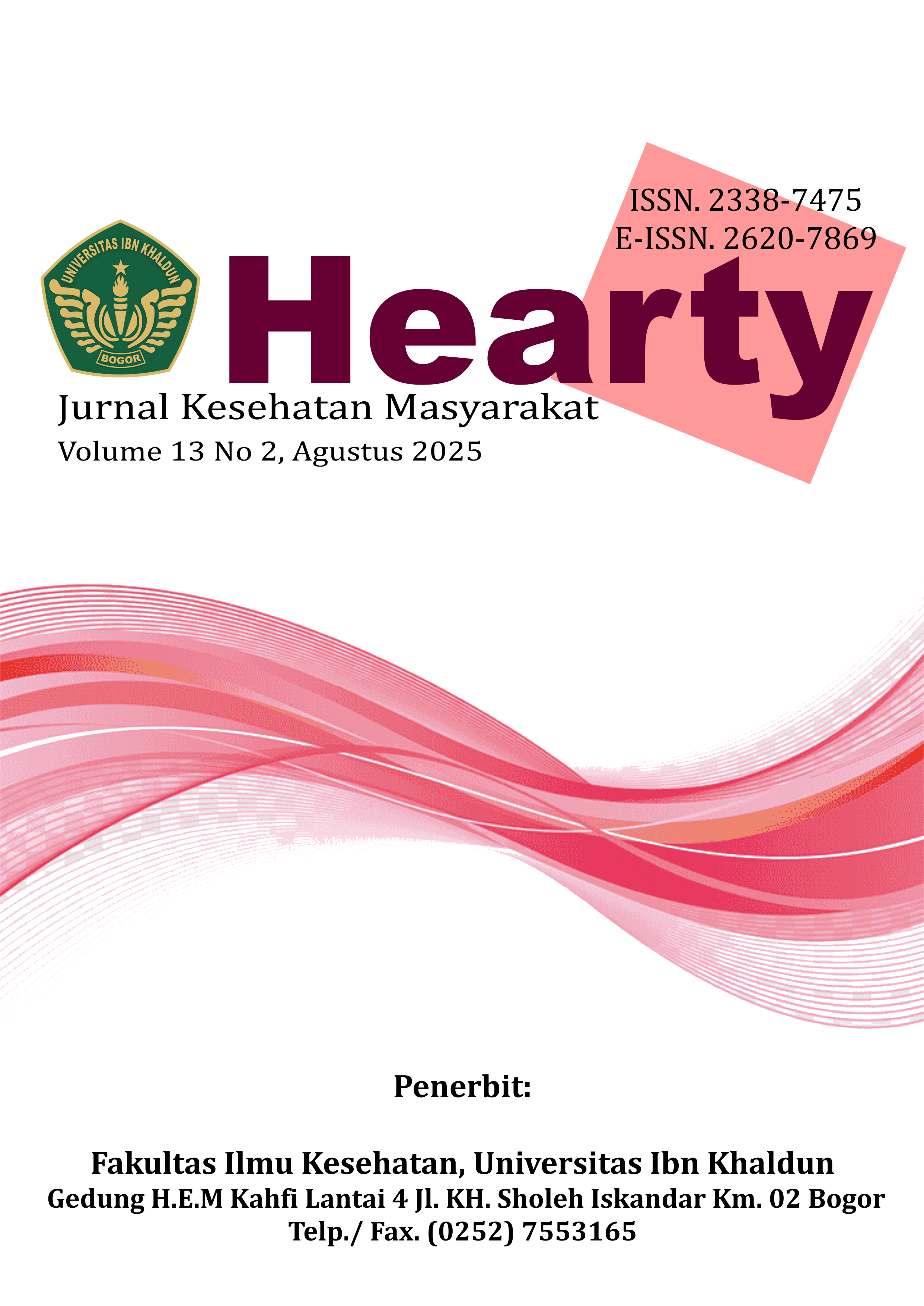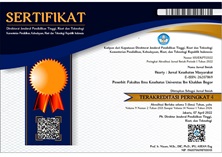THE RELATIONSHIP OF ATTITUDE, KNOWLEDGE, AND CULTURE OF FOOD ABSTINENCE OF TRIMETER PREGNANT MOTHERS WITH THE INCIDENCE OF CHRONIC ENERGY DEFICIENCY (C ED ) IN THE CLINIC WANASARI TELUKJAMBE WEST KARAWANG YEAR 2023
DOI:
https://doi.org/10.32832/hearty.v13i2.16121Abstract
Background: According to WHO, the prevalence of CED in pregnant women in the world is around 38%, while in Indonesia it is 19.7%. One of the causes of pregnant women experiencing CED is the amount of food intake, age, attitudes of pregnant women, diseases/infections, the mother's knowledge about CED, family income, and the culture of the population living in rural areas. Research purposes: Knowing the relationship between the level of knowledge, culture, and attitudes of pregnant women in the first trimester with the incidence of chronic energy deficiency (KEK) at the Wanasari Clinic, Telukjambe Barat, Karawang in 2023 Research methods: Use analytical descriptive by design cross-sectional The research population was 52 respondents in the first trimester of pregnancy at the Wanasari Teluk Jambe Karawang Clinic. The research sample consisted of 31 respondents. bivariate analysis e using the test Wilcoxcone. Research result: Test results Shapiro Wilk Test earned value 0.519 (p>0.05). So it can be concluded that there is no influence between knowledge and the incidence of KEK at the Wanasari Clinic in Telukjambe Barat. Conclusions and recommendations: The conclusion was that there was no relationship between the level of knowledge, culture, and attitudes of pregnant women in the first trimester with the incidence of chronic energy deficiency (KEK) at Wanasari Clinic Telukjambe Barat Karawang. Suggestions in this research are for educational institutions, for research sites, for respondents, and future researchers.
























